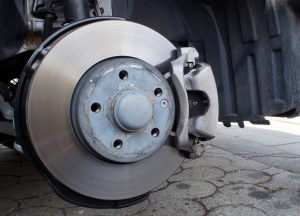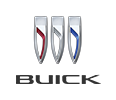
To keep your car’s brakes working perfectly, they must be checked and serviced regularly. When your brakes are working correctly, you have the security of knowing that you can control your car’s speed with ease. Worn or damaged brakes can put you and your car in danger. These are some of the signs from your Chevy dealer that you’re going to need a brake repair.
Squealing Brakes
When you apply the brakes, they should work silently and efficiently. If you hear squealing sounds when you mash the pedal, this is a sign of a brake problem. Brake fluid under pressure causes the brake calipers to close on either side of your wheel rotors. The brake pads inside the calipers generate the friction resistance that brings your wheel rotors to a stop.
Your braking system is subject to wear, and parts can be affected by moisture from water, mud, and snow. If your brake calipers aren’t regularly checked according to your car’s service schedule, they can start to rust. Rusted metal is noisy when it moves, and it’s also more difficult to get rusted metal to move. The squealing sound can be caused by rusted metal pads or calipers. Our technicians can easily fix this problem.
Screeching Brakes
Your brake pads serve the important function of bringing your rotors to a stop. They have a friction material covering that is 1/2″ thick, and this will rapidly slow and stop your car. The friction material on the pads wears off, and the pads will gradually become thinner. The manufacturers of the brake pads install a warning device in the pads to remind you that it’s time to change them.
The warning system in the pads isn’t subtle. It’s a metal spike that is buried in the pad material. When the pads drop to 1/4″ thick, this spike is revealed. The spike will scratch against the meta wheel rotor the next time you apply the brakes. This contact makes a loud screeching sound, and it’s a clear warning that your pads need to be changed ASAP.
Overheated Brake Fluid
Your braking system is controlled by hydraulic pressure. This pressure is generated by the brake fluid. When you step on the brake pedal, brake fluid is pumped into the rubber brake hoses. When you take your foot off the pedal, the fluid is drawn back to the brake fluid reservoir to cool. If you ride your brakes, the brake fluid is kept under pressure in the hoses.
High pressure generates heat, and the hot brake fluid in the hoses can quickly overheat. If you smell a hot chemical odor, your brake fluid could be overheating. We advise pulling over ASAP and allowing the fluid to cool. Once the fluid has cooled, come into our service department so our technicians can check your braking system.
If you have any problem with your brakes, call us immediately at Orr Chevrolet of Fort Smith. Our expert technicians will find and repair the problem.
Image by Ralphs_Fotos from Pixabay







